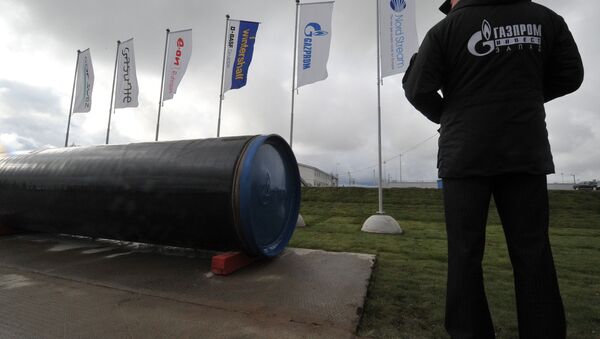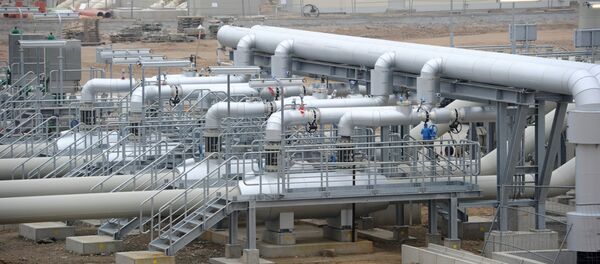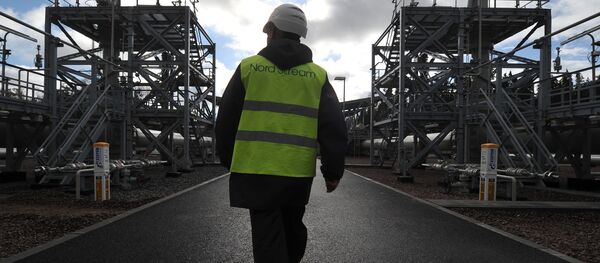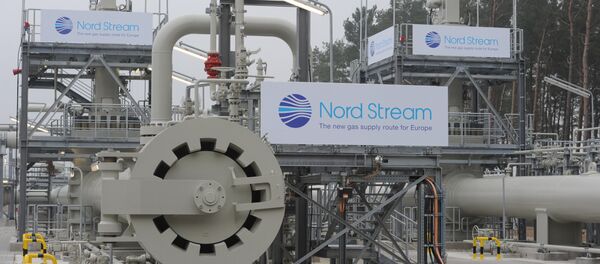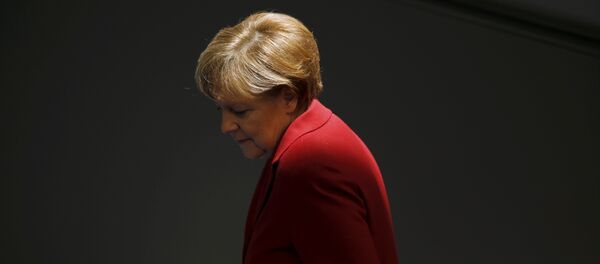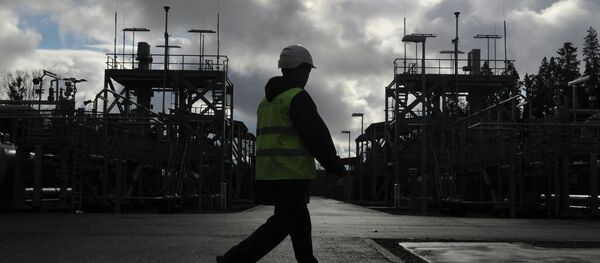In response, Polish politicians suggested that Warsaw would do everything in its power to torpedo the project, Polish MEP Jacek Saryusz-Wolski noting that Poland would respond to this 'geopolitically dangerous' project with "a common front to counter its implementation."
A statement Monday by Foreign Minister Witold Waszczykowski appeared to indicate dissent among the ranks, or a policy reversal, with the minister suggesting that Poland would like to see future gas pipelines from Russia to Western Europe run through Polish territory.
In any case, with the Baltics, Poland and their patrons across the Atlantic dead set on challenging the Russian-German project, which is set to shift from the legal to the construction phrase in the near future, independent Russian newspaper Svobodnaya Pressa ponders how likely it is for the project to go ahead.
Then, there are the countries, including Poland and Ukraine, which stand to lose out on transit fees and a measure of geopolitical clout if Russia were able to rely on the Baltic Sea corridor to bypass Eastern Europe entirely and supply gas directly to Western Europe.
"Latvia and Poland," Yushkov notes, "are building LNG gas terminals and hope that in the future, a considerably part of the gas supplies coming to Western Europe from Norway and even the United States will come through them."
"This," however, "is expensive gas. We can see that practically-minded Germany has completed its calculations long ago, and does not make any statements about Nord Stream 2, surreptitiously attempting to [simply] implement the project. And the last word on whether the new natural gas project is approved or not belongs not to European officials, but to the German government – the country to whose territory the pipeline will travel."
In any case, according to Yushkov, "it's clear why Germany (and the whole of Western Europe, frankly) is interested in 'doubling' [the capacity of the existing] Nord Stream network. Northern Europe's own gas production is dropping significantly. Norway, the UK, the Netherlands and other countries cannot continue to extract gas supplies at the same levels they had previously. At the same time, Germany is looking to buy cheap gas from Russia, not LNG gas from the US or Norway."
Asked by the newspaper whether Nord Stream 2, which would double the existing Nord Stream pipeline's capacity of up to 55 billion cubic meters (equivalent to about 29% of all of Gazprom's exports in 2014) could free Russia from the need to use politically unfriendly Ukraine as a transit country, Yushkov noted that "this is a difficult question."
Ultimately, "the Russian leadership has put forth a clear task: to escape from a situation where there is no alternative to supplying Europe with gas without going through Ukraine. Nord Stream 2 will create such an alternative. At the same time, it will not be necessary to completely abandon transit through Ukraine."
In other words, Russia is looking to ensure that "at critical moments in relations between our countries, we will always be able to send gas along another route," Yushkov explained.
"Actually, the situation with these pipelines is different. In the case of the first Nord Stream, Germany was interested in seeing the project implemented, and therefore it was. Berlin has acted very cleverly, and was one of the countries that opposed the South Stream. Its experts said that the pipeline would not correspond to Europe's energy strategy, and so on and so forth. At the same time, they themselves turned around and made an exception for the NEL pipeline, which gets its supplies from the North Stream, and bypasses the rules of the Third Energy Package," (an EU package of legislation designed to ban one company from owning both the pipeline and the gas flowing through it).
"In the case of South Stream," Yushkov noted, "there was no such lobby of strong governments. Therefore, Bulgaria was successfully pressured into rejecting the fulfillment of agreements it had already signed with Gazprom."
Asked why construction will take such a long time (with the project slated to be completed only in 2019), the analyst explained that ultimately, this is "not a matter of technical issues. In principle, it would be possible to finish the project in two years. But Berlin faces intense pressure from Washington, which does not want Germany to buy gas from Russia. I think the sanctions against Iran are being lifted precisely in order to say to the Europeans 'here is your alternative to Russian gas'."
In any case, Yushkov notes, the overall prospects for Russia in supplying gas to Europe are steady, in spite of the sharpened geopolitical situation surrounding the crisis in Ukraine. "I do not think that we will see any serious fiascos…So far, in spite of the numerous sanctions, the Europeans have not made a peep about gas. Russia, in turn, does not want to close the taps to its geopolitical opponents –Moscow doesn't want to give them any ammunition for accusations of 'energy blackmail'."
For his part, commenting on Washington's reaction to the Nord Stream 2 project, Sergei Pravosudov, the general director of the Moscow-based National Energy Institute, explained that despite serious pressures from across the Atlantic against the Western Europeans, "Germany, the chief lobbyist in favor of the project, does not seem ready to give up. We will see which of them proves to be more persistent."
In any case, the analyst noted, "the Americans are not so much looking to prevent Russian gas from going to Europe, so much as they fear the economic, and resultant geopolitical convergence between Germany and Russia. For them this is the same kind of 'nightmare scenario' as an alliance between Russia and China."
Ultimately, Pravosudov too believes that Russian gas will continue to have good prospects on the European market in the near future. "Not so long ago, the Europeans attempted to shift from Russian gas to coal (most of it also Russian). This was done on the calculation that coal was cheaper. Now, the difference in price has been reduced, but gas is significantly more environmentally friendly. At the same time, in the new year, in accordance with EU environmental regulations, old coal plants will begin to close. Therefore, chances are that the purchase of Russian gas will grow."
